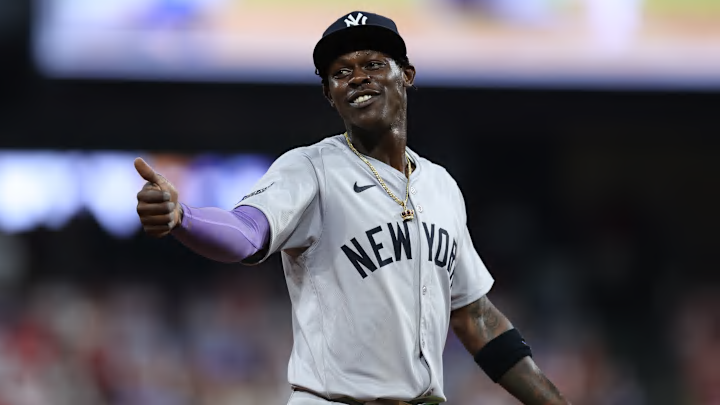We were stunned when the blockbuster trade actually took place. It almost didn't seem real and made us reminisce about his legacy. I'm of course talking about the trade that sent Miami Marlins CF Jazz Chisholm Jr. to the New York Yankees. Jazz wasn't a free agent after the season and was the face of the team. Why trade him? Why not extend him instead? Here are the three reasons why the trade makes sense...
The Miami Marlins had three reasons to trade Jazz Chisholm Jr.
3. HEALTH
There's little more worrying than a player who can't stay healthy. Jazz Chisholm Jr. developed a reputation as injury-prone, which was pretty serious considering his long-term future. He had all kinds of injuries throughout his career: back problems, a toe injury, a shoulder injury, a hamstring injury, an oblique injury, an ankle injury...
In 2020 he played in only 21 out of a possible 60 games; in 2021, he played in 124 out of a possible 162 games; in 2022, he played in 60 out of a possible 162 games and in 2023 he played in 97 out of a possible 162 games. He's been healthy this season, but for how long? If he stays healthy, can he be trusted to avoid injuries in later seasons?
Health is a major concern and if Jazz Chisholm Jr. was to get an extension, it would've been vital to make sure that he wouldn't be an injury risk from the beginning of the contract.
NEXT: A FORGOTTEN REASON
